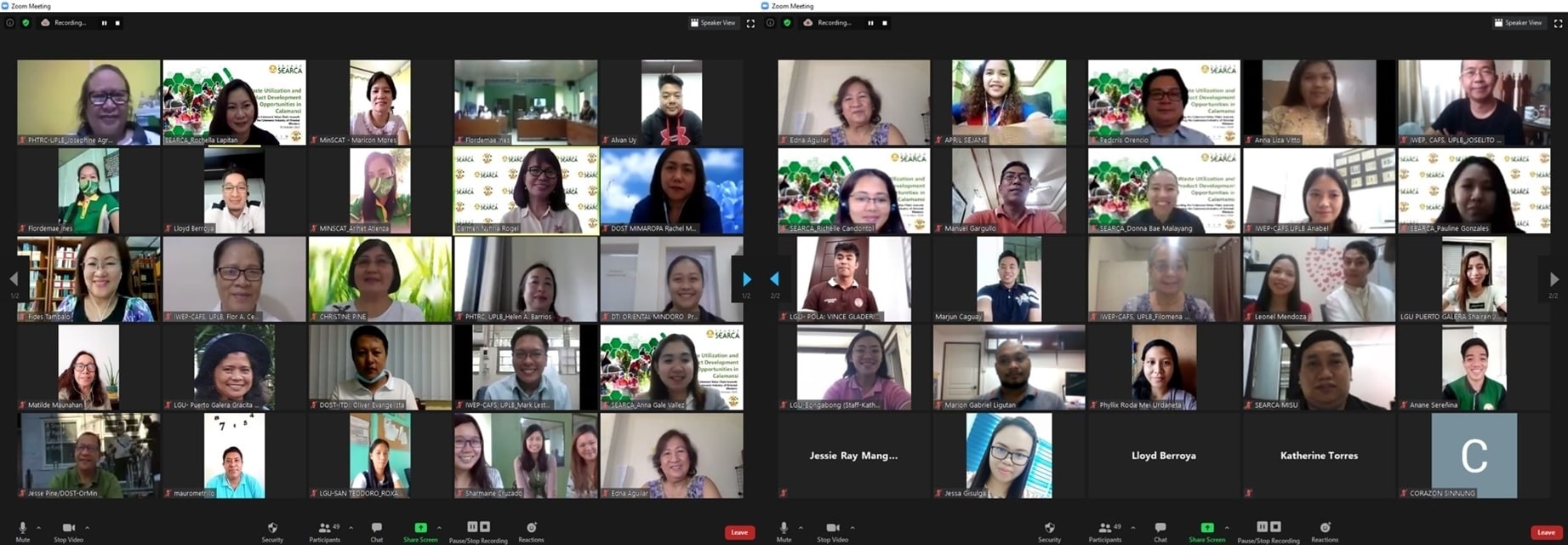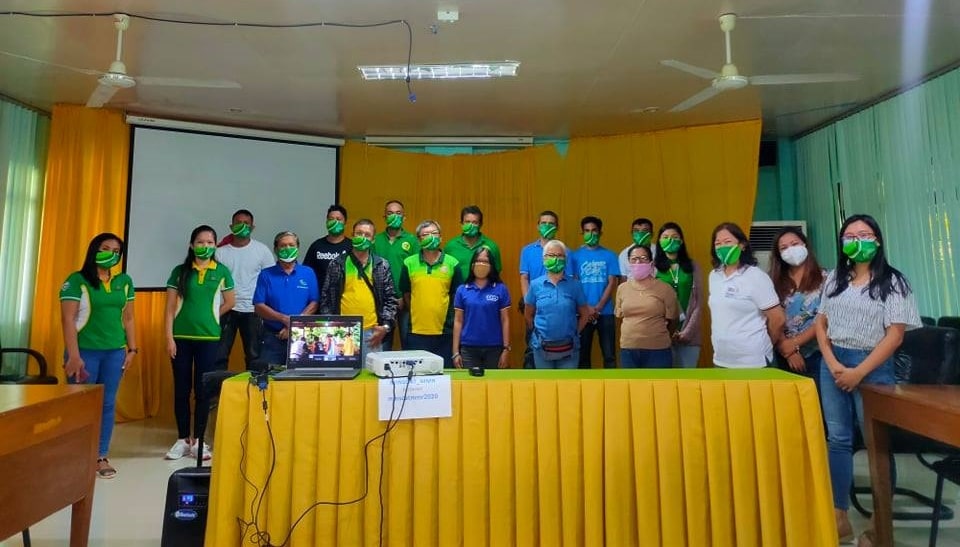The Southeast Asian Regional Center for Graduate Study and Research in Agriculture (SEARCA) hosted an online seminar on 13 October 2020 to promote the enhancement of calamansi products and enterprise development in Oriental Mindoro. With the theme “Waste Utilization and Product Development Opportunities in Calamansi”, the seminar aimed to enable the participants to have a good grasp of the calamansi processing industry and the opportunities and challenges it presents and to recommend interventions and strategies for potential calamansi products and enterprises.
Dr. Pedcris M. Orencio, SEARCA’s Program Head for Research and Thought Leadership welcomed the participants, which included farmer-leaders, processors and the private sector in the Province, and representatives from government agencies such as the Department of Science and Technology (DOST), Department of Trade and Industry (DTI), and Department of Agriculture (DA). Dr. Orencio introduced the project “Upgrading the Calamansi Value Chain towards Improving the Calamansi Industry of Oriental Mindoro” during his opening remarks. He said this project aims to bring together the strengths of the research institutions, in collaboration with the local government units, private sector and industries to address the technical and market constraints that confront the calamansi industry. This is in line with SEARCA’s priority theme of Academe-Industry-Government (AIG) interconnectivity to strengthen agricultural innovations and promote market-driven agribusiness models towards increased productivity and income of farmers and stakeholders.

 Participants to the online seminar composed of the SEARCA-UPLB Project Management and stakeholders from the Academe, Industry and several Government units and attached agencies.
Participants to the online seminar composed of the SEARCA-UPLB Project Management and stakeholders from the Academe, Industry and several Government units and attached agencies.
Dr. Matilde V. Maunahan, Study Leader from the Postharvest Horticulture Training and Research Center (PHTRC)-University of the Philippines Los Baños (UPLB) gave the participants an overview of the seminar. She stated that this activity took off from the results and recommendations of the earlier value chain analysis and the stakeholders’ validation workshop to set the tone for further initiatives in calamansi enhancement and product development.
Ms. Christine M. Pine, Provincial Agriculturist of Oriental Mindoro first discussed the province’s calamansi industry roadmap. She explained the current production trends, products and markets, and the major constraints along the calamansi value chain. According to her, the Province is envisioned to be the number one supplier of quality fresh and processed calamansi products that are compliant with good agricultural and manufacturing practices and standards catering to both domestic and international markets.
In her presentation on “Waste Utilization and Product Development in Calamansi: The Processors’ Bucket List”, Ms. Fides Z. Tambalo, University Researcher II of the Enzyme Laboratory, National Institute of Molecular Biology and Biotechnology (BIOTECH)-UPLB, discussed the different food and non-food products that can be derived from calamansi by-products such as the pulp, rind and peels and their market potential. These include essential oil, pharmaceutical and cosmetic products. On the other hand, Mr. Oliver C. Evangelista, Senior Science Research Specialist of the DOST-Industrial Technology Development Institute (ITDI), introduced the calamansi dietary fiber which is an insoluble type of dietary fiber that can be derived from the pulp and peel of the calamansi fruit. The said product prototype can be in the form of tablet, powder and cookies.
Representatives from several institutions and the private sector participated in the seminar by giving their perspectives on the topics discussed and possible ways forward towards improving the calamansi industry of Oriental Mindoro. Those who expressed their support and pledged their commitment on behalf of their organizations were Ms. Corazon O. Sinnung, Regional Focal Person for the High Value Crops Division of DA-Region IV-B. Ms. Rachel B. Montero, Science Research Specialist II of DOST-Oriental Mindoro; Ms. Lucilyn Precious A. Leviste of DTI-Oriental Mindoro; Mr. Lloyd Kristoffer Berroya, President of the Berroya Corp.; and Mr. Leonel C. Mendoza, Director for Research and Manager of the Food Innovation Center of the Mindoro State College of Agriculture and Technology (MinSCAT).
The online seminar concluded with inspiring messages from Dr. Edna A. Aguilar, Professor from the Institute of Crop Science, UPLB and Calamansi Project Leader, and Dr. Maria Concepcion L. Mores, Vice President for Research, Development and Extension of MinSCAT and Monitoring Coordinator of the project. Both stressed the relevance and importance of this project especially to the calamansi farmers, processors and other stakeholders in Oriental Mindoro.